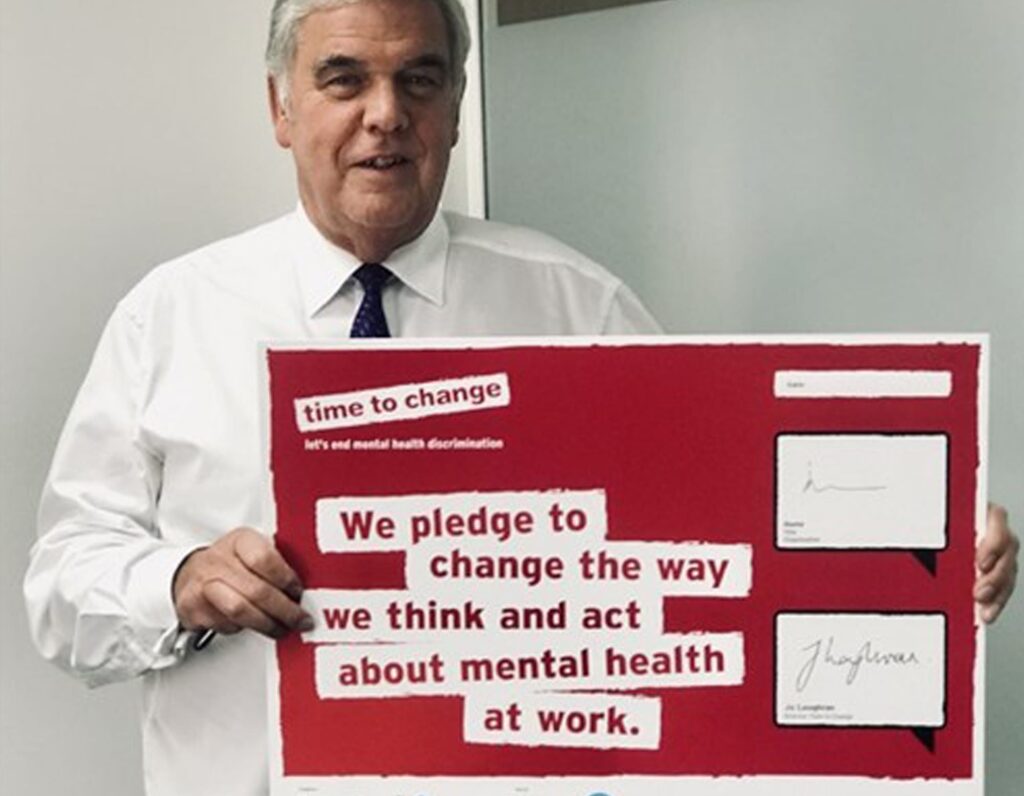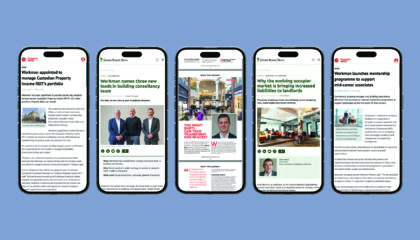Time to Change is a growing social movement working to change the way we all think about mental health problems and tackling mental health discrimination in the workplace.
Monday 13th May 2019 marks the start of Mental Health Week. David Workman has signed the ‘Time to Change’ pledge. This is to cement the firm’s commitment to encouraging mental wellness in the workplace.
Supporting mental health
Our staff are our biggest asset. We know that creating a positive, tolerant and supportive working environment, where everyone can flourish, is paramount to our success.
Supporting the mental health of our employees forms a fundamental part of this.
There is no ‘one size fits all’ approach. As such, we are committed to providing, resourcing and signposting a holistic approach to promoting positive mental health in the workplace.
We understand the connection between wellbeing and performance. Enhancing our employees’ stress management and work-life balance improves overall individual and organisational performance.
Signing the Pledge
We are delighted to sign the time to change pledge. It’s a mark of the firm’s commitment to continue to improve our approach to mental health in the workplace.
By doing this, we solidify our commitment to providing our people with accessible support whenever they need it. Additionally, to commit to reducing the stigma surrounding mental health at work, across all levels of the business.
We are proud to be joining more than 900 organisations across all sectors. These range from FTSE 100 companies and leading retailers to Government departments and local authorities.
Signing the pledge, David Workman adds:
“I am delighted to sign the Time to Change Pledge on behalf of Workman LLP. It is a mark of the firm’s commitment to continuing to improve our approach to mental health and wellbeing in the workplace. I very much hope that our people will make good use of the wellbeing resources available and will assist the firm in embracing this important pledge across all levels and departments of the business.”
Mental health first aiders
As part of our commitment to supporting mental health in the workplace, Sasha Armstrong, Partner in our London office, recently attended a course to become a mental health first aider.
The course focused on helping people who may be developing mental health problems, those experiencing a worsening of an existing mental health problem or those experiencing a mental health crisis.
Sasha explains below why she felt it was important to undertake the course:
“1 in 4 experience mental ill health at any one time. I attended the LionHeart John O’Halloran symposium which had a number of speakers that had experienced ill mental health and how they found it difficult to talk about it in their firm. This made it more difficult for their mental health to improve.
“I wanted to do something to reduce the stigma of mental health within our own firm and help make Workman a company where we can talk freely about mental health and try and help others.
“We spend more time with work colleagues than we do with our family so we should firstly, get to know as many people in the office as possible, so that we would notice any change in someone’s behaviour, secondly, be a good listener, for example if a colleague tells us they didn’t have a good weekend, we should offer to listen to them if they want to talk about it and lastly, don’t judge anyone or make them feel uncomfortable. We should all be able to speak to each other and look out for each other.”
Our action plan
Over the coming months and looking forward, we will put in place measures to help identify and reduce workplace stresses, ensure that support is available to every employee and promote a tolerant and inclusive culture where our people feel able to share any mental health concerns they may have.
To support this, we have developed an action plan which includes:
- The appointment of dedicated Wellbeing champions across all offices, whose role will be to promote firm-wide and local activities, to provide feedback, and to encourage colleagues to access the relevant support and initiatives that are available to them;
- Equipping line managers with the tools they need to support their teams and to promote a tolerant and supportive culture across the firm;
- Update and implement policies and resources to address mental health problems in the workplace.
Since signing the pledge, 95% of employers said it had a positive impact on their organisation and we look forward to the positive changes this will bring to the firm and its employees. We are looking forward to seeing continued positive changes in our already inclusive workplace.
To find out more please visit www.time-to-change.org.uk




